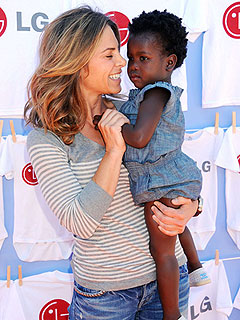TOKYO (Reuters) - Asian shares recovered on Wednesday as solid euro zone data calmed nerves jarred by potential political turmoil in Spain and Italy, while the prospect of a dovish new governor for the Bank of Japan dragged the yen to a new low.
Sentiment for other risk assets also improved, pushing London copper up 0.4 percent to $8,302.75 a tonne to a near four-month high, while Brent crude hovered near a 20-week high. Signs of recovery taking root in Europe, the United States and China have helped improve the demand outlook.
The MSCI's broadest index of Asia-Pacific shares outside Japan <.miapj0000pus> added 0.3 percent, tracking an overnight gain in global equities on data showing the U.S. services sector extended a three-year expansion in January and business activity in the euro zone climbed to a 10-month high last month.
The Standard & Poor's 500 Index <.spx> and the Nasdaq Composite Index <.ixic> gained over 1 percent.
In Asia, investors have been quick to book profits as prices approached their highs, but analysts and traders say any dip was likely to be seen as a chance to buy back into the market.
The pan-Asian index scaled a 18-month high on Monday, and was up about 2.3 percent so far this year, considerably modest compared to the S&P's nearly 6 percent gain in the same period.
Australian shares <.axjo> jumped 0.9 percent, leading the regional peers.
"We're following on from a pretty good lead from global markets last night," said Steve Daghlian, market analyst at Commonwealth Securities, of Australian equities.
Brent crude was up 0.2 percent to $116.72 a barrel while U.S. crude was barely changed at $96.64.
Japanese equities and government bonds rose while the yen touched fresh lows on expectations for stronger reflationary policies from the BOJ.
The dollar touched 93.91 yen to its highest since May 2010, while the euro also rose to 127.65 yen, its loftiest since April 2010. The Aussie reached a 4-1/2 year peak around 97.42 yen. The pound touched a 3-year high near 147.25 yen.
Yen selling resumed after Bank of Japan Governor Masaaki Shirakawa said he would step down on March 19, three weeks earlier than the official end of his five-year term, leaving at the same time as his two deputies, and raising the prospect that the next BOJ governor will more readily adopt the expansionist monetary policy demanded by Prime Minister Shinzo Abe.
"The Bank of Japan is about to get a lot more dovish, and sooner than previously thought," said Christopher Vecchio, a currency analyst at DailyFX.
Japan's benchmark Nikkei stock average <.n225> soared 3.1 percent to a 33-month high. <.t/>
"I think the market could yet rise when they announce the new governor's name, particularly if it makes an asset purchase budget of 50 trillion yen ($535 billion) from the BOJ more likely," said Norihiro Fujito, senior investment strategist at Mitsubishi UFJ Morgan Stanley.
The 10-year JGB yield fell 1.5 basis points to 0.775 percent after opening higher, at 0.800 percent.
The euro drew support from growing confidence in the region's economy and improving funding conditions for deeply-indebted euro zone members.
News the European Central Bank's balance sheet fell to an 11-month low of 2.8 trillion euros ($3.8 trillion) as markets unwound some of the ECB's crisis funding measures underpinned the euro, coming in stark contrast to the U.S. Federal Reserve and the BOJ which keep expanding asset buying.
"Flows matter more than stock in currency markets when comparing central bank balance sheets ... highlighting the euro's outperformance over the last few months," said Ashraf Laidi, chief global strategist at City Index, in a note to clients.
The euro was steady at $1.3578, above a key technical support of its 14-day moving average at $1.34653.
The ECB is expected to keep interest rates unchanged at its policy meeting on Thursday, but its president may face a grilling over an Italian banking scandal.
Spanish and Italian yields fell on Tuesday after jumping on worries over a corruption scandal in Spain and polls showing Italy's former prime minister Silvio Berlusconi regaining ground before elections this month.
The yen's fall lifted benchmark Tokyo gold futures to a record high of 5,067 yen per gram on Wednesday.
(Additional reporting by Ian Chua and Thuy Ong in Sydney and Ayai Tomisawa and Sophie Knight in Tokyo; Editing by Sanjeev Miglani)










